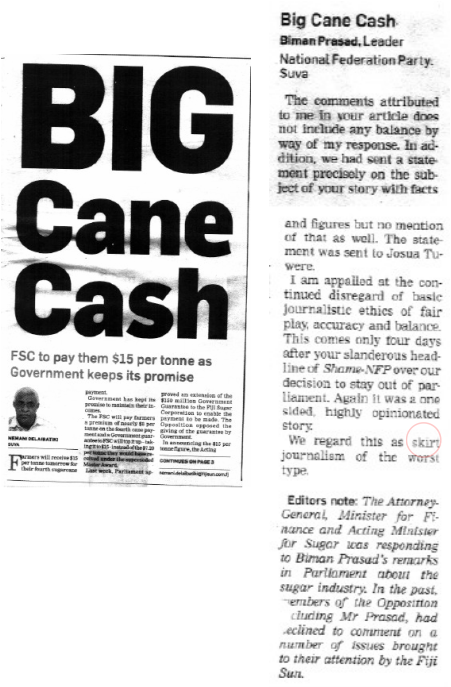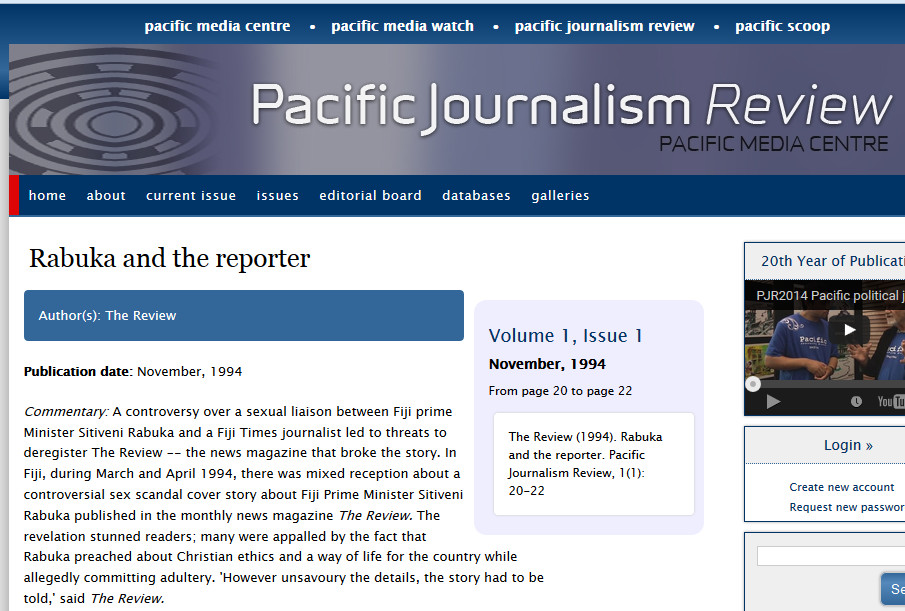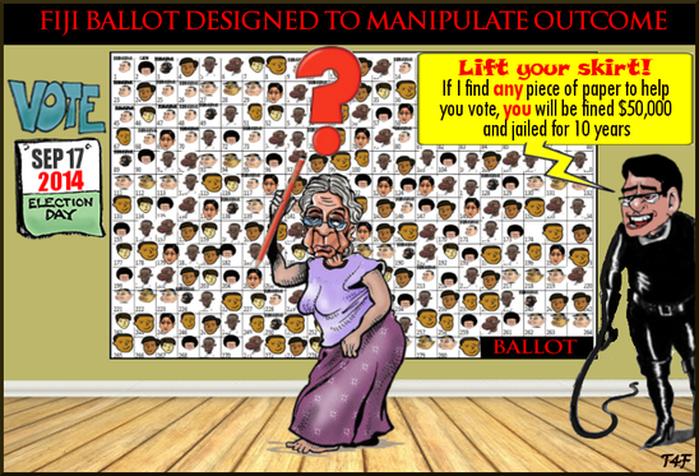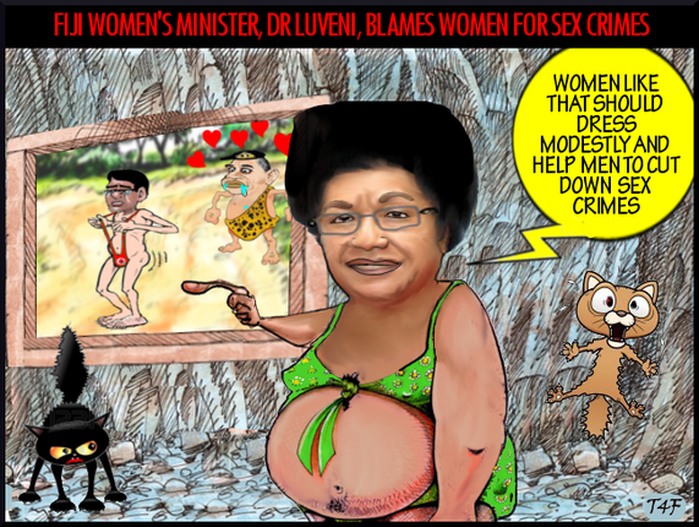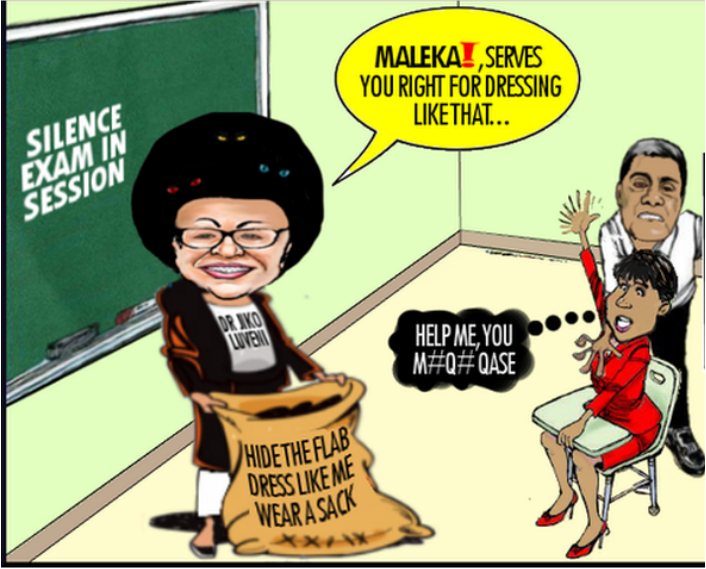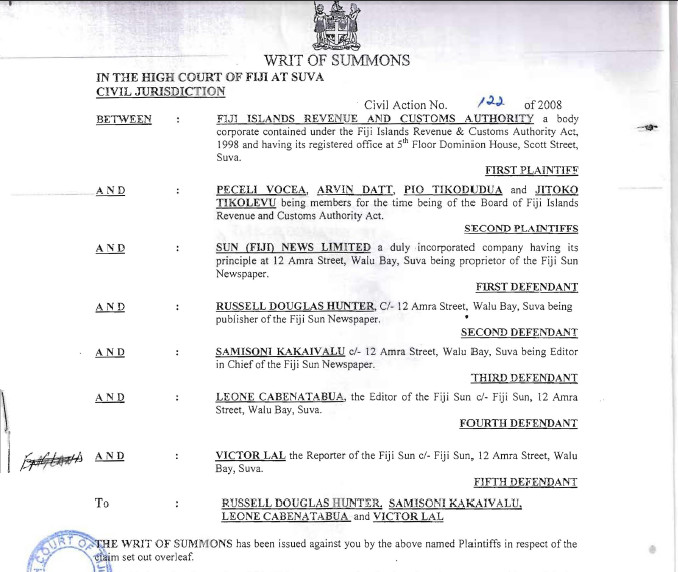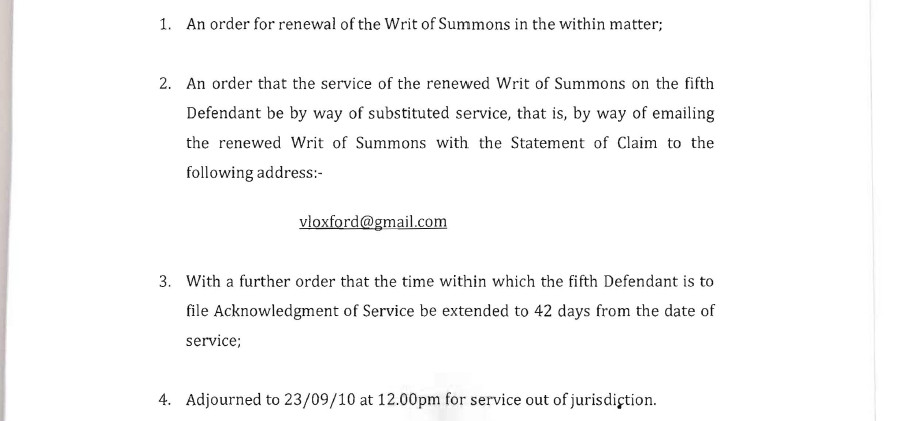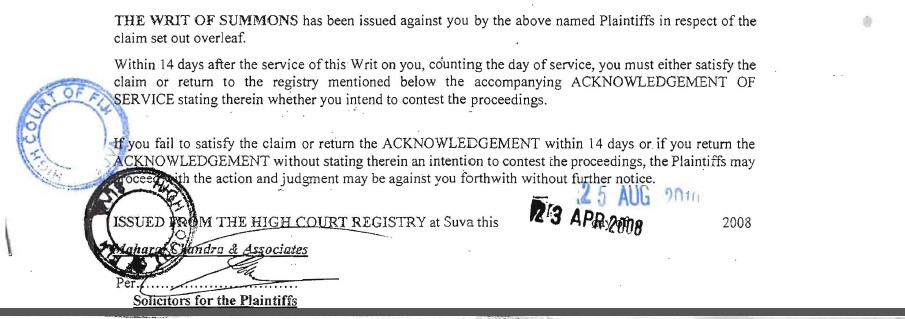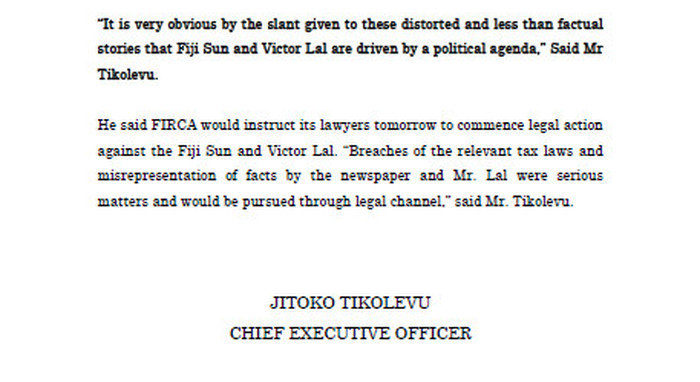By Nemani Delaibatiki
Fiji Sun 19 July 2015
Biman Prasad’s attempt to link Fiji Sun’s managing editor news Jyoti Pratibha to skirt journalism is outrageously sexist and defamatory.
It’s probably the reason why this below-the belt reference was deleted from his article published in The Fiji Times yesterday.
Mr Prasad’s comments in response to a critical editorial by Ms Pratibha last Wednesday nevertheless were sent to more than one email address.
The National Federation Party MP and leader said skirt journalism was given new meaning via Ms Pratibha’s Editorial Comment. He implies that Ms Pratibha is linked to skirt journalism.
This is untrue, uncalled for and unbecoming of someone who likes to portray himself as a learned leader. The term “skirt journalism” in Fiji is commonly understood to refer to sexual liaison between female journalists and male news sources.
It came to the fore several years back. Two women journalists from The Fiji Times, the newspaper Mr Prasad has been speaking favourably about in Parliament and outside, were involved in a major controversy relating to this.
Ms Pratibha has never stooped so low. It’s an insult to her intelligence and integrity to be dragged by Mr Prasad into gutter politics like this. It typifies the male chauvinistic attitude common amongst some who still see women as sex objects and subservient to men.
Mr Prasad needs to retract that skirt journalism statement and apologise to Ms Pratibha. His lengthy statement, received Friday afternoon, is being referred to our lawyers tomorrow.
Fijileaks: A commentator has brought to our notice that Professor Biman Prasad had referred to another article as 'skirt journalism'; the commentator wants to know why no legal action was threatened against Professor Prasad's Letter to the Editor, Fiji Sun, May 19, 2015?:
"We regard this (Big Cane Cash story) as skirt journalism of the worst type" - NFP leader Biman Prasad
From the Archives
A controversy over a sexual liaison between Fiji prime Minister Sitiveni Rabuka and a Fiji Times journalist led to threats to deregister The Review -- the news magazine that broke the story.
By editorial staff of The Review, Fiji
IN FIJI, during March and April 1994, there was mixed reception about a controversial sex scandal cover story about Fiji Prime Minister Sitiveni Rabuka published in the monthly news magazine The Review. The reveation stunned readers; many were appalled by the fact that Rabuka preached about Christian ethics and a way of life for the country while committing adultery. 'However unsavoury the details, the story had
to be told," said The Review.
The Fiji Times reporter involved in the controversy sparked off the reports by openly discussing her brief fling with Rabuka -- and it appeared to become common knowledge.
The day after The Review hit the streets, the Daily Post ran a front-page story based on a statement supposedly issued by the Prime Minister's Office on legal action against The Review and Ratu Inoke Kubuabola. However, The Review defiantly weathered the controversy and threats to deregister the magazine. The following is a diary of the controversy compiled by The Review:
Wednesday, 16 March 1994: Fiji Prime Minister Sitiveni Rabuka's leadership was challenged barely a month after his election victory by Ratu Inoke Kubuabola, Cakaudrove member of Parliament, on the basis that the Prime Minister had offered the opposition National Federation Party a coalition partnership without consulting the Bose Levu Vakaturaga (Great Council of Chiefs) and secondly that the Prime Minister had committed adultery with a woman journalist during the Cakaudrove provincial meeting.
At a meeting of the Soqosoqo Vakavulewa Ni Taukei (SVT) caucus, Rabuka admitted the adultery accusation, saying his wife and taiatala (pastor) had both forgiven him. Rabuka, a lay preacher, was also stripped of his pastoral duties. A stormy session broke out but in the interests of party unity, the members forgave Rabuka and asked him to stay clean.
Thursday, 17 March: The scandal, which had been common knowledge for sometime was confirmed to The Review. The fact that the scandal was also confirmed unsuccessfully used as a political move to challenge Prime Minister Rabuka's leadership. After cross-checking with various sources among those at the caucus meeting, The Review compiled its April edition, leading it with the political showdown.
Wednesday, 6 April: The review came hot-off-the-press and copies were delivered and air-mailed to subscribers.
Thursday, 7 April: The magazine hit the newsstands in the capital, Suva, promoted by the Daily Post's front page story reporting that Prime Minister Rabuka would sue The Review and Kubuabola. The SVT issued a four-point statement confirming the story indirectly by condemning the 'leakage' of what it called confidential information, signed by party secretary-general Dr Filimone Wainiqolo.
Friday, 8 April: Information Minister Ratu Josefa Dimuri [a onetime Fiji Times journalist] slammed the Post front-page story saying the statement to the Post from the Prime Minister's Office was unauthorised. Dimuri told the Post that the SVT appreciated the Prime Minister's sincerity and openness in the way he handled the matter and the party had rallied to support him. Kubuabola was also reported in the same story as saying he wasn't worried and that he would tell all if he was taken to court by Rabuka.
Saturday, 9 April: The Fiji Times first mentioned the controversy by quoting Information Minister Dimuri.
Monday, 11 April: The Fiji Times beat up the Post's Friday front-page story with the headline SVT LEAK A LIE and reported Dimuri as saying that if he had the power he would deregister The Review over its sources. The minister added he would push for a review of the Media Registration Act. The story drew condemnation from news media organisations.
Tuesday, 12 April: Opposition Leader Jai Ram Reddy described Dimuris threat in the Times as 'disturbing, frightening and extreme'. All National Congress MP David Pickering, Labour Party leader Mahendra Chaudhry and Fijian Association party chairman Josevata Kamikamica also condemned Dimuri's threats.
Wednesday, 13 April: Dimuri issued a statement saying that Rabuka had offered to quit as Prime Minister in March after the accusations of adultery were made. 'The Prime Minister told Ratu Inoke that he would not deny the accusation of adultery,' Dimuri said. Kubuabola countered that Dimuri's statement contained inaccuracies and claimed it was designed to
discredit him [Kubuabola].
Thursday, 14 April: The SVT, two Independents and the General Voters Party members supported the Budget in its second reading with 37 votes to defeat the Opposition. A pleased Rabuka told the Times that the scandal had been resolved and put to rest.
Friday, 15 April: The Budget was adopted.
Tuesday, 19 April: The weekly Weekender hit the streets, citing 'national security reasons' for not publishing the previous week. It was going to implicate Rabuka further, the paper said. Sunday, 24 April: Weekender publisher Jo Nata was arrested and charged with criminal trespass. [The Weekender named the woman at the centre of the affair in its delayed April 15 issue as Fiji Times reporter Wainikiti Waqa.
The weekly reported: Wainikiti continued working with the Fiji Times despite an obvious breach of ethics. 'Skirt journalism' is regarded with contempt by the journalism fraternity outside Fiji. The Fiji Times is unabe to take any action unless Wainikiti is named as a woman journalist referred to in The Review disclosure. Rabuka later confirmed that the woman concerned was Wainikiti. Wainikiti neither confirmed nor denied that she was having an affair with the Prime Minister. The liaison with Rabuka occurred at Caukadrove Provincial Council meeting on 13 October 1993. Wainikiti was in Taveuni to cover the meeting for the Fiji Times].
Reprinted from the May 1994 issue of The Review (Fiji).
